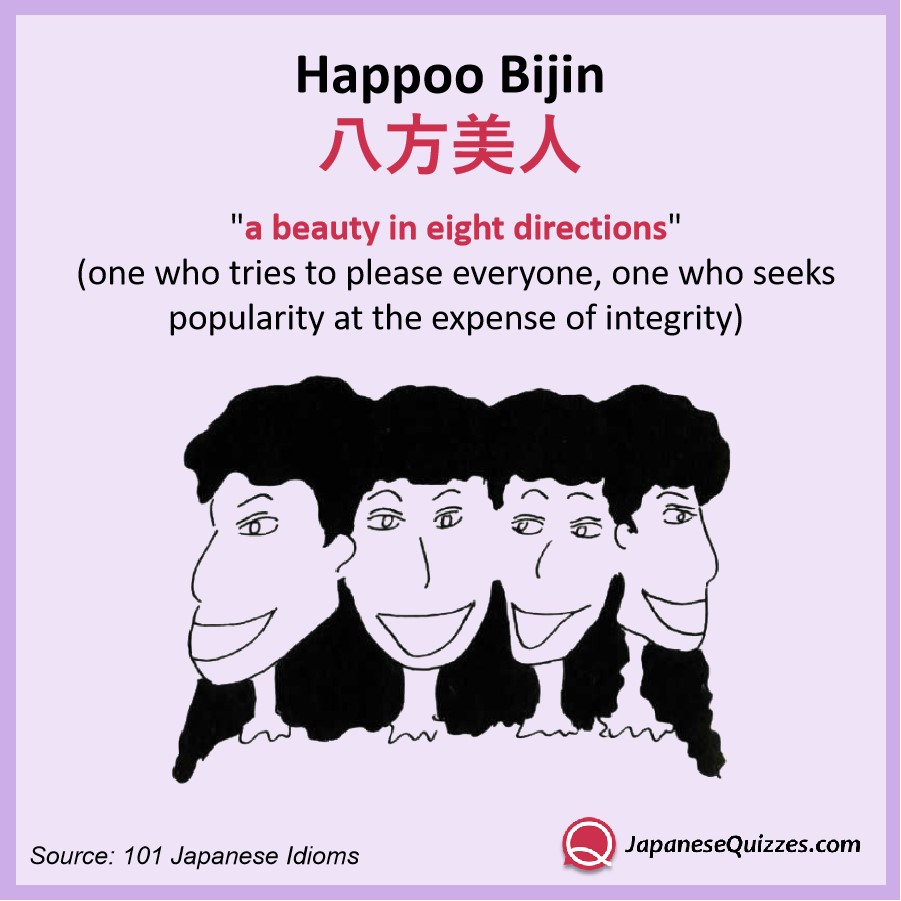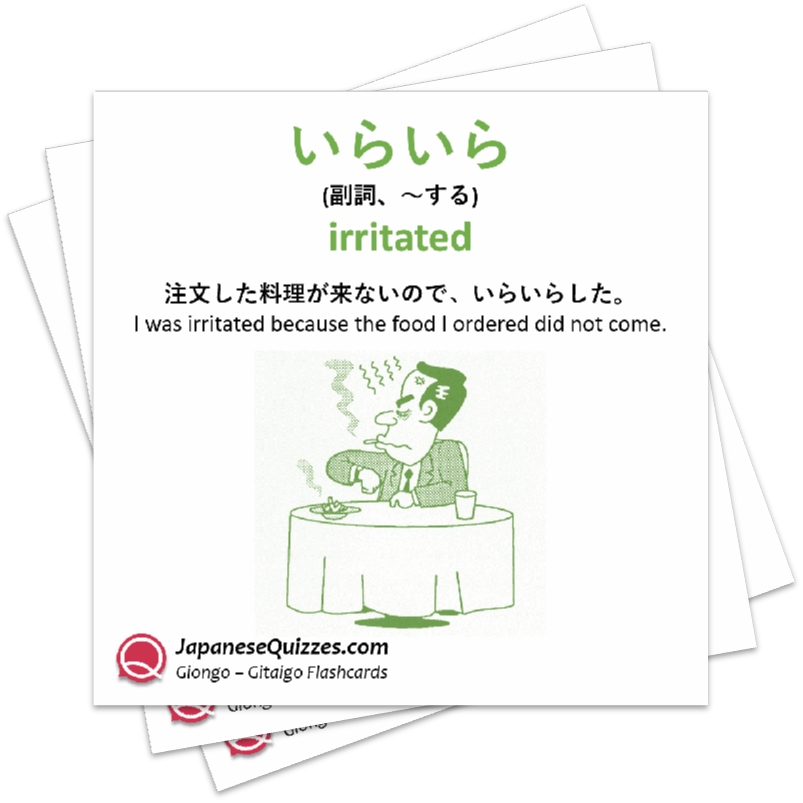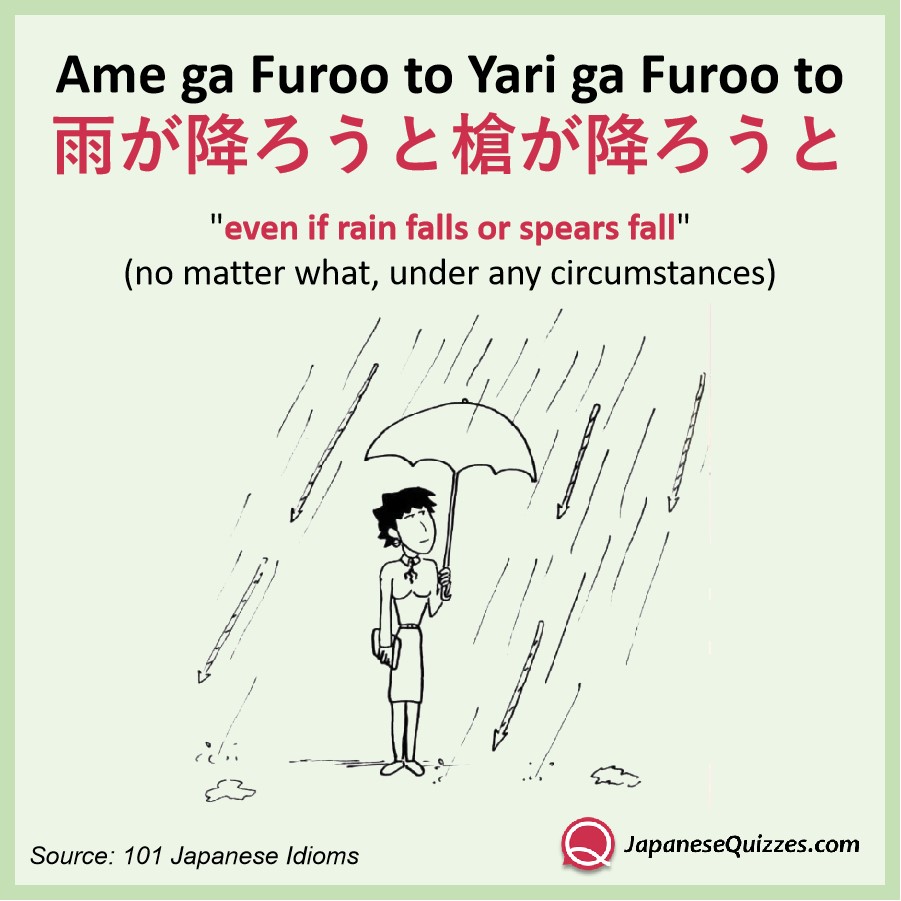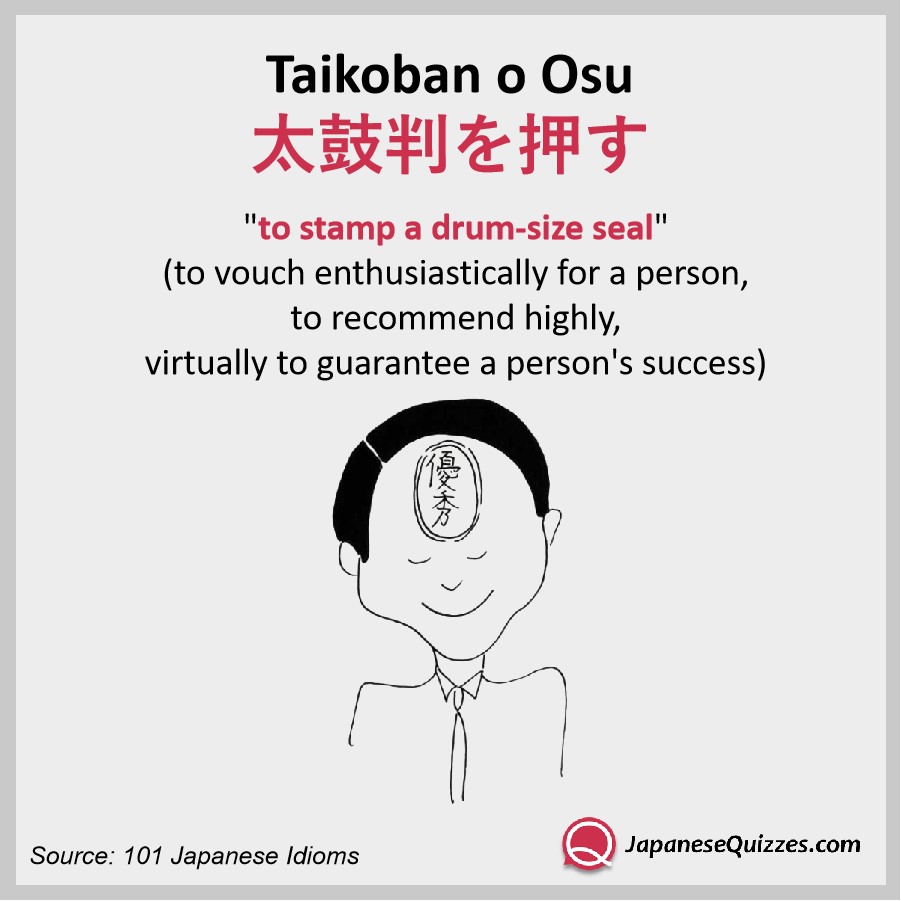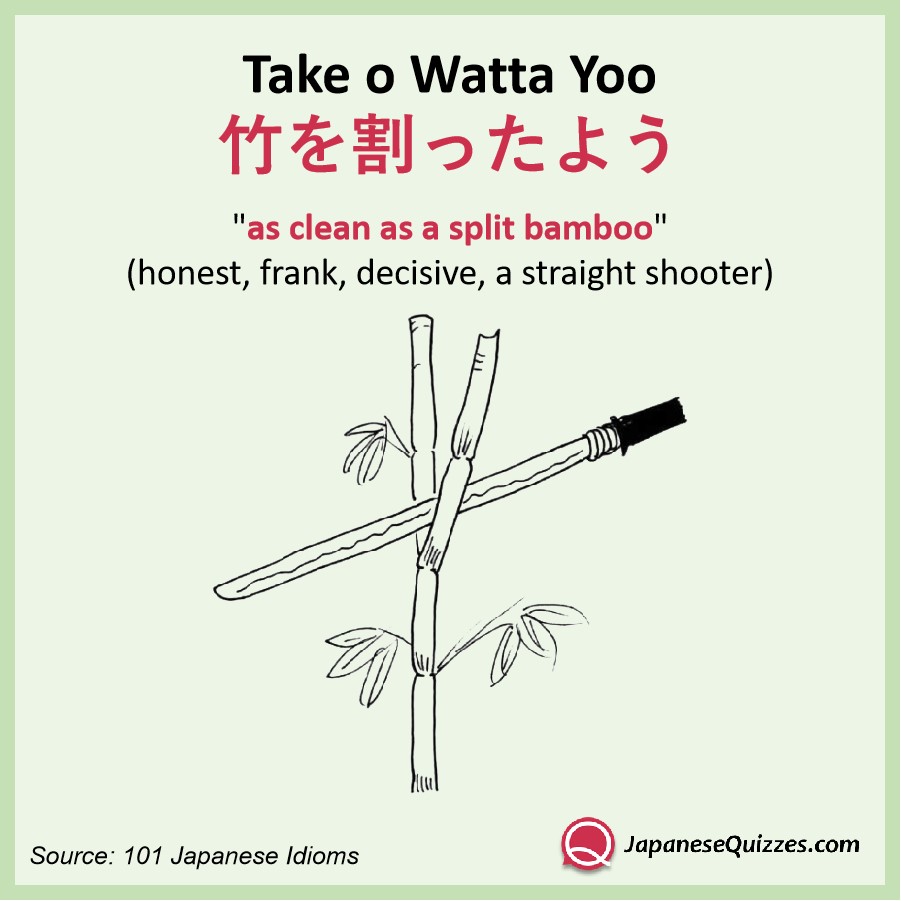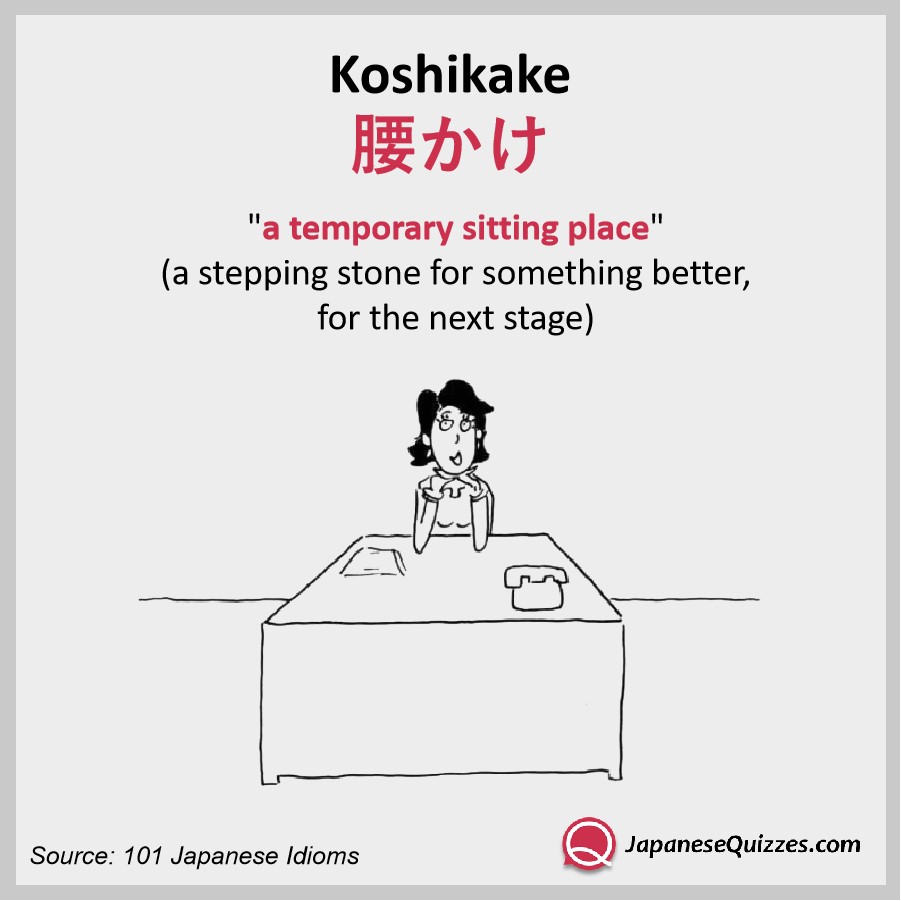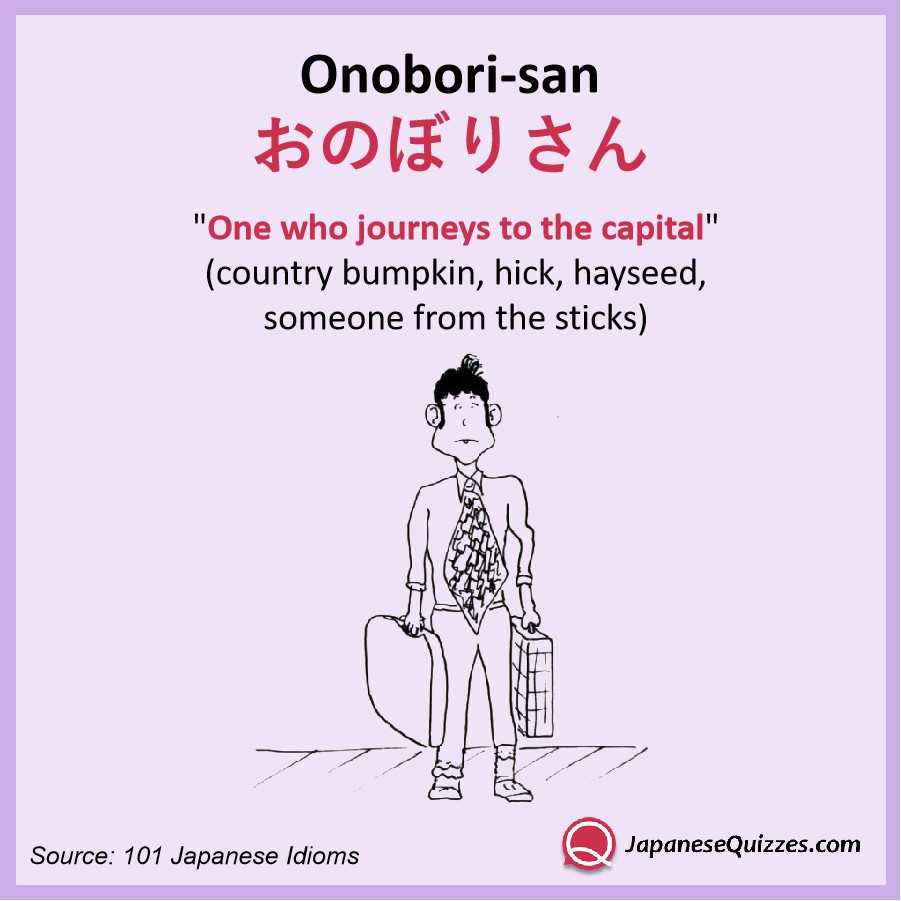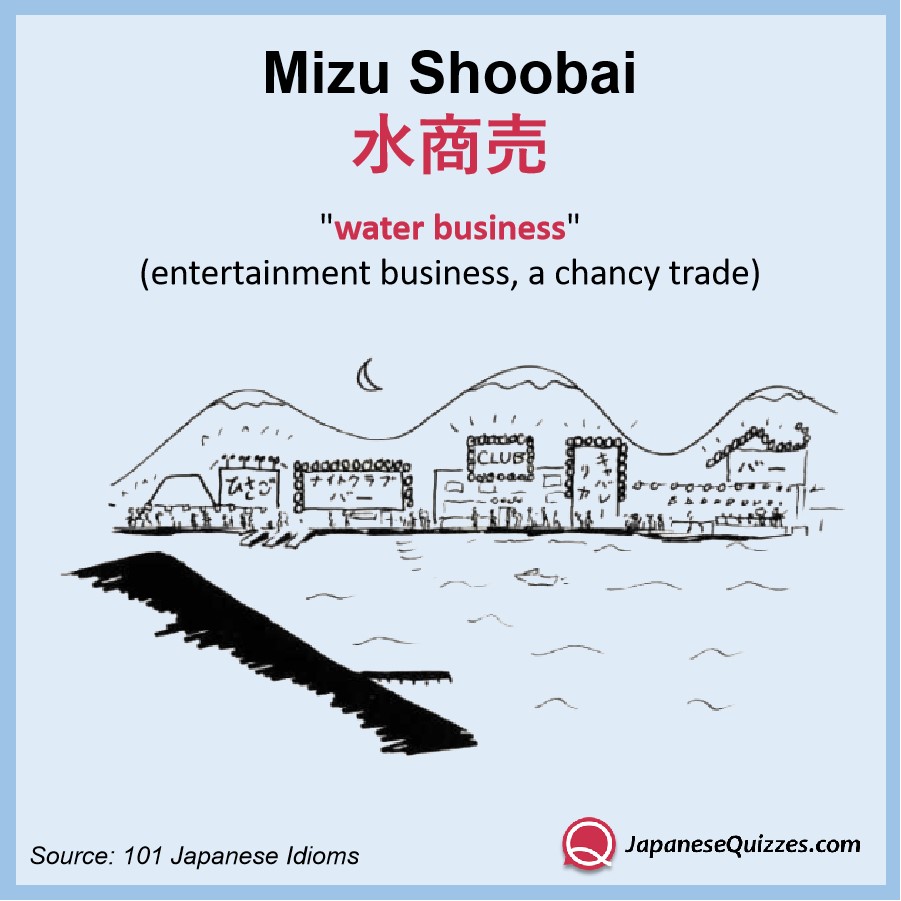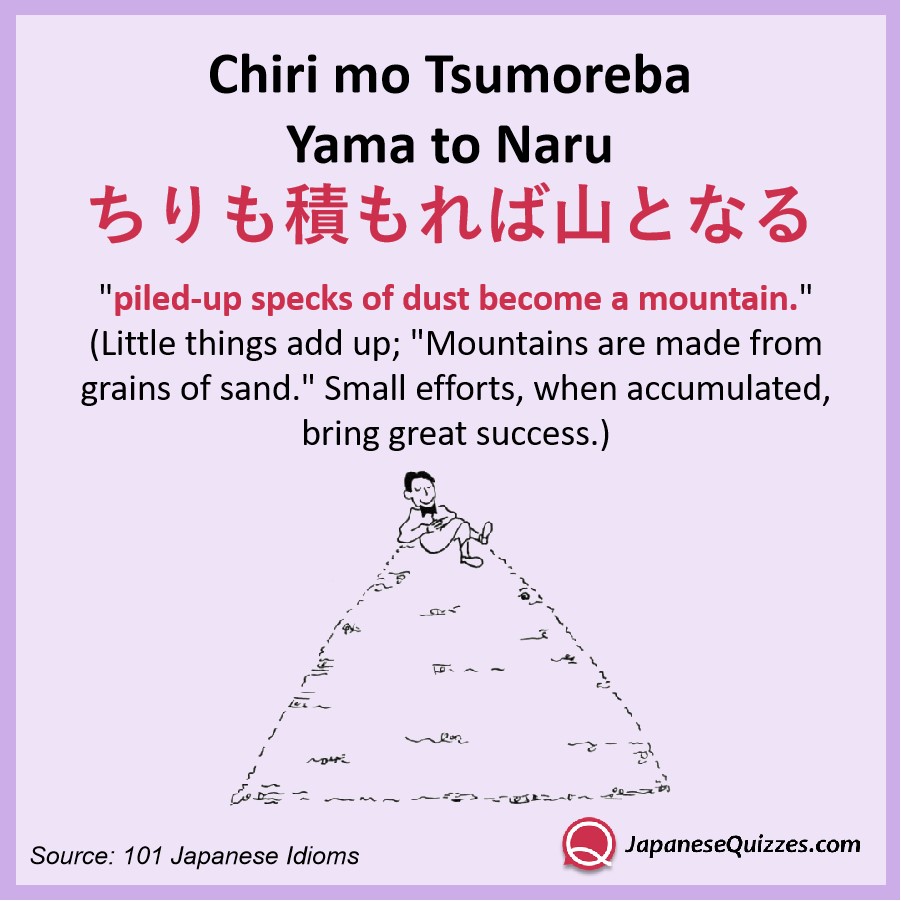
片棒をかつぐ
“to shoulder one’s end of the pole”
(to take part in, to hold up one’s end of the operation, to have a hand in)

In feudal times, palanquin and coffin carries worked on pairs. The responsibility for lifting and transporting was equally divided. To shoulder one’s end of the pole means to hold up one’s end of the operation, taking full responsibility for being an equal partner.
Sample text:
(Style: spoken/A=casual male, B=formal male)
A: Iyaa, ano jiken wa jinjika no Yamada-san ga kataboo o katsuida rashii yo.
B: Yappari soo na n desu ka. Maa, Kawai-san hitori de, anna daisoreta koto o keikaku suru hazu wa nai to omottemashita ga ne.
A: いやあ、あの事件は人事課の山田さんが片棒をかついだらしいよ。
B: やっぱりそうなんですか。まあ、川井さんひとりで、あんな大それたことを計画するはずはないと思ってましたがね。
A: Well, it appears that Mr. Yamada from the personnel department had a hand in that affair.
B: Just as I guessed. I figured that Mr. Kawai couldn’t possibly have come up with such an ingenious plan all by himself.
Japanese Idioms

重箱の隅を〔ようじで〕つつく
“to pick at the corners of a food-serving box [with a toothpick]”
(to be obsessively oriented toward inconsequential details, to dwell on minutiae, to split hairs)

Juubako is a box-shaped container for serving food. After the meal, one or two small pieces of food may remain stuck in the corners. Only an obsessive person would try to remove the left-over particles with a toothpick.
Sample text:
(Style: spoken/formal)
A: Tashiro-san no hanashi wa zenzen susumanai n desu yo ne. Juubako no sumi o tsutsuku yoona doo demo ii youna hanashi bakari de, juudaina koto wa minna atomawashi. Kore ja itsu ni nattara saishuu kettei made motte ikeru mono yara…
B: Soo na n desu ka. Sore wa taihen desu ne.
A: 田代さんとの話はぜんぜん進まないんですよね。重箱の隅をつつくようなどうでもいいような話ばかりで、重大なことはみんなあとまわし。これじゃいつになったら最終決定までもっていけるものやら。
B: そうなんですか。それは大変ですね。
A: Talking with Mr. Tashiro never goes anywhere. He only dwells on minutiae, and important issues are left behind. I have no idea when the final decision will be made.
B: Is that so? Too bad.
Japanese Idioms

箱入り娘
“a girl that ‘s kept in a box”
(an innocent girl of good family, an over-protected daughter)

A pre-war parlor game featured little wooden figures that were moved around (as in a board game). The figures represented members of a typical family and were kept stored in a box. The idealized musume (daughter) came to symbolize the shy, sheltered character of a girl who has never left home (the box). Hakoiri musume refers to an unworldly daughter from a good family.
Sample text:
(Style: spoken/formal/female)
A: Kyooko-san, Amerika ni ryuugaku suru n desu tte.
B: Ara, sore, otoosan mo okaasan mo OK shita no? Anna hakoiri musume o Amerika ni dasu nante sazokashi shinpai deshoo nee.
A: 京子さん、アメリカに留学するですって。
B: あら、それ、お父さんもお母さんもOKしたの?あんな箱入り娘をアメリカに出すなんてさぞかし心配でしょうねえ。
A: I hear Kyoko is going to the States to study.
B: Oh? Did her parents approve? They must be very concerned about sending such an over-protected daughter off all the way to the States.
Japanese Idioms

出る杭は打たれる
“The stake that sticks up will be pounded down.”
(Excellence is shot down by mediocrity; doing better than others evokes jealousy; difference is forced into conformity.)

Commentary offered in explanation for why a gifted individual who may be head and shoulders above the norm is brought down to size by the members of his or her group. Quite literally, the stake that sticks out above the other stakes in a row is brought into line by being pounded down.
Sample text:
(Style: spoken/casual/male)
A: Takahashi wa atarashii kaisha ni uttsuta kedo umaku ikanai rashii na.
B: Aitsu, atama ga yosugiru n da. “Deru kui wa utareru” tte yuu daro. Sore ga tamaranai n janai ka, aitsu no koto da kara.
A: 高橋は新しい会社に移ったけどうまくいかないらしいな。
B: あいつ、頭が良すぎるんだ。『出る杭は打たれる』って言うだろう。それがたまらないんじゃないか、あいつのことだから。
A: You know Takahashi, he moved to a new company, but he isn’t getting along too well, I hear.
B: He’s too brilliant. “Excellence is shot down by mediocrity,” you know. He probably can’t stand it, knowing him.
Japanese Idioms

ちゃんぽん
“ching-boom”
(a combination of ingredients [often that don’t mix well], a medley of elements)
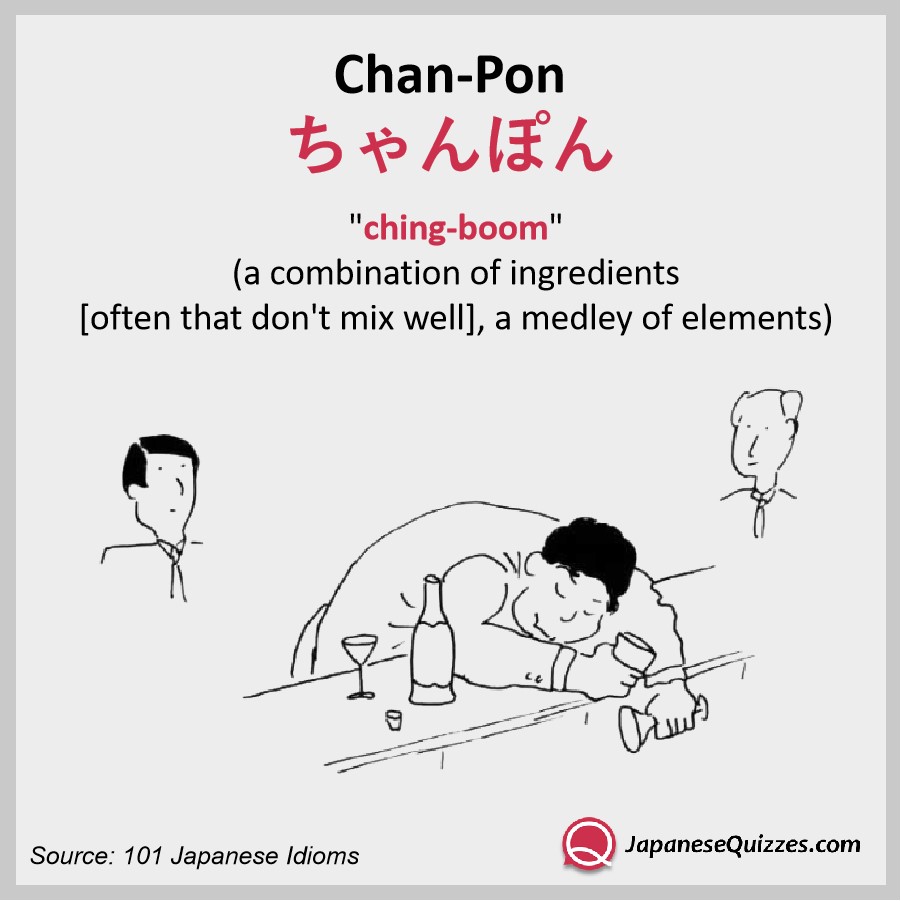
Chan is sound of a chime, pon, the sound of a hand drum. When played simultaneously the result is a dissonant, jarring sound. Chan-pon is used to mean the result of mixing things together that should not be mixed, often with unfortunate consequences-whiskey and beer, spaghetti and Japanese miso soup.
Sample text:
(Style: spoken/casual/male)
A: Kinoo wa doo shita no?
B: Sake to biiru o chan-pon ni nonda n de, hidoi futsuka yoi de sa. Totemo asa jogingu ni iku yoona jootai janakatta n da.
A: きのうはどうしたの?
B: 酒とビールをちゃんぽんに飲んだんで、ひどい二日酔いでさ。とても朝ジョギングに行くような状態じゃなかったんだ。
A: What happened yesterday?
B: I mixed drinking sake and beer, and I got this terrible hangover. I was in no condition to go jogging in the morning.
Japanese Idioms

ばかは死ななきゃ治らない
“Only death can cure a fool.”
(Once a fool, always a fool.)

A derogatory term used in reference to someone who consistently demonstrates incompetence or poor judgment. Said in moments of exasperation, the phrase suggests an attitude of “I give up; there’s no hope for you.”
Sample text:
(Style: spoken/casual/male)
A: Aitsu, hontooni zetsubooteki da ne. Nani yatte mo dame na n da.
B: “Baka wa shinanakya naoranai” tte ne. Ima sara kaeyoo to shite mo muri daroo.
A: あいつ、本当に絶望的だね。何やってもダメなんだ。
B: 『ばかは死ななきゃ治らない』ってね。今さら変えようとしても無理だろう。
A: He’s hopeless. That idiot can’t do anything right.
B: Well, they say, “Only death can cure a fool.” It’s probably impossible to change him now.
Japanese Idioms







